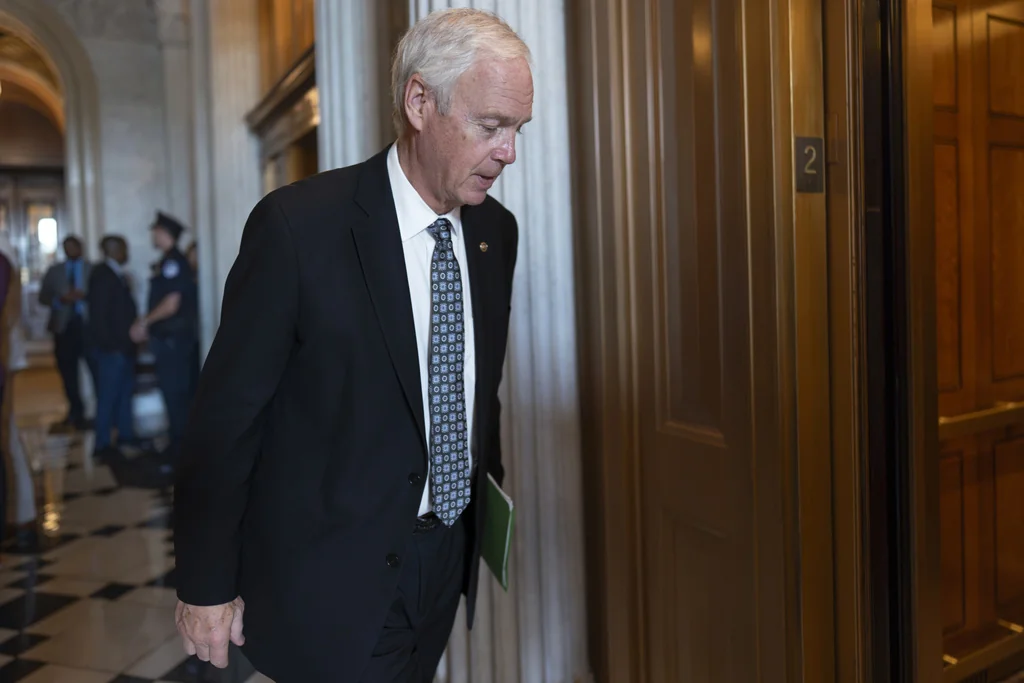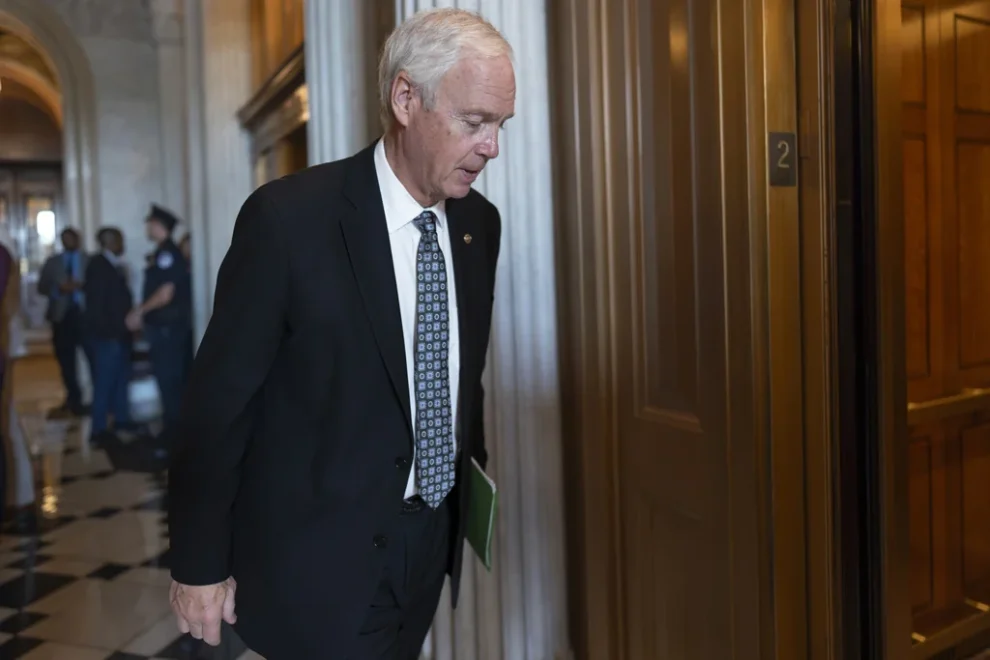It took weeks of vote-wrangling for congressional Republicans to near final passage of $9 billion in DOGE-inspired cuts, or only 0.10% of the $7 trillion budget.
The arduous saga, filled with centrist complaints and some last-minute deal-cutting, doesn’t bode well for conservatives who have their sights on far more ambitious efforts under President Donald Trump, who has promised to erase the $2 trillion a year deficit.
“It tells me we should’ve pressed for a lot more spending reductions in the One Big Beautiful Bill,” said Sen. Ron Johnson (R-WI). He was among the fiscal hawk holdouts who ultimately voted to favor Trump’s signature tax law despite projections that it would hike the deficit.
Sen. Thom Tillis (R-NC), a centrist emboldened by his recent retirement announcement, compared the $9 billion clawback, known as a rescission, to “collecting bottles on the side of the road.”
The White House request, which centers on foreign aid and public broadcasting dollars, was narrowly cleared the GOP-led Senate Thursday despite two GOP defectors. The measure will next head back to the House, where Republicans previously passed a slightly larger $9.4 billion rescission.
Republicans and the White House are already contemplating what cuts a second rescission bill may contain and how to slash broader federal spending in the annual appropriations process.
But the weekslong rescission fight is laying bare how difficult it will be to fund the government, let alone pare back federal spending. The White House released a budget blueprint in May that would reduce non-defense discretionary spending by $163 billion, and the GOP-led House is marking up its bills at lower levels, too.
However, the bipartisan cooperation needed due to the Senate filibuster, plus concerns within Trump’s own party, will limit what can be accomplished in the next fiscal year.
As part of the GOP tax bill, Republicans managed to slash spending by around $1 trillion, offsetting what even right-leaning think tanks project will be trillions in new deficits. The changes were modest, however, and centered on Medicaid reforms like work requirements that could win centrist GOP support.
Efforts to maintain the status quo, including a $10,000 cap on the state and local tax deduction, were also scrambled by costly demands by blue-state Republicans to carve out more generous tax provisions.
Republicans can keep advancing rescission bills, a workaround that allows the majority party to claw back funding with a simple majority vote, but the current bill also strained centrists’ willingness to accommodate Trump, due in particular to its cuts to global health programs and public radio funding.
As the Senate was undergoing a marathon voting session Wednesday, Republican senators sent a letter asking White House budget director Russ Vought to “faithfully implement” separate education funds the administration appears to be withholding.
Some Senate Republicans are also warning Trump officials not to inadvertently sabotage future negotiations with the Democrats, who say they can’t vote for an appropriations bill if Republicans will then try to walk back a deal with rescissions.
“[Democrats] have been very concerned about, ‘Why would we vote for an appropriations bill if you’re going to be able to come back in and cut out the parts that we care about in a rescission package with only 50 votes?’” said Sen. Mike Rounds (R-SD), characterizing conversations with Democratic colleagues on the Appropriations Committee. “It’s a valid concern.”

The partisan tensions raise the distinct possibility of another continuing resolution, a funding patch that keeps the government operating at current levels. Washington is presently operating on a full-year CR that passed in March after the two parties could not reach a funding agreement.
“It’s fundamentally changing the way the government is supposed to function. That kind of poisons the well a bit here,” Sen. Mark Kelly (D-AZ) said of the rescission. “How do we do our jobs when the president’s just going to undo our work? That’s not right.”
The possible erosion of trust with Democrats was also raised by Republicans during a meeting this week with officials from the White House budget office, according to Rounds.
TRUMP’S DOGE CUTS FACE FINAL SENATE HURDLE WITH ‘VOTE-A-RAMA’ SESSION
“I don’t know if they agree with me or not, but they are aware of it,” Rounds said.
Separately, Republicans are contemplating a second or even third attempt at reconciliation, the filibuster-skirting budget process used to pass their megabill. Johnson, the fiscal hawk, says party leaders have essentially promised to get another “bite at the apple” on spending.
























